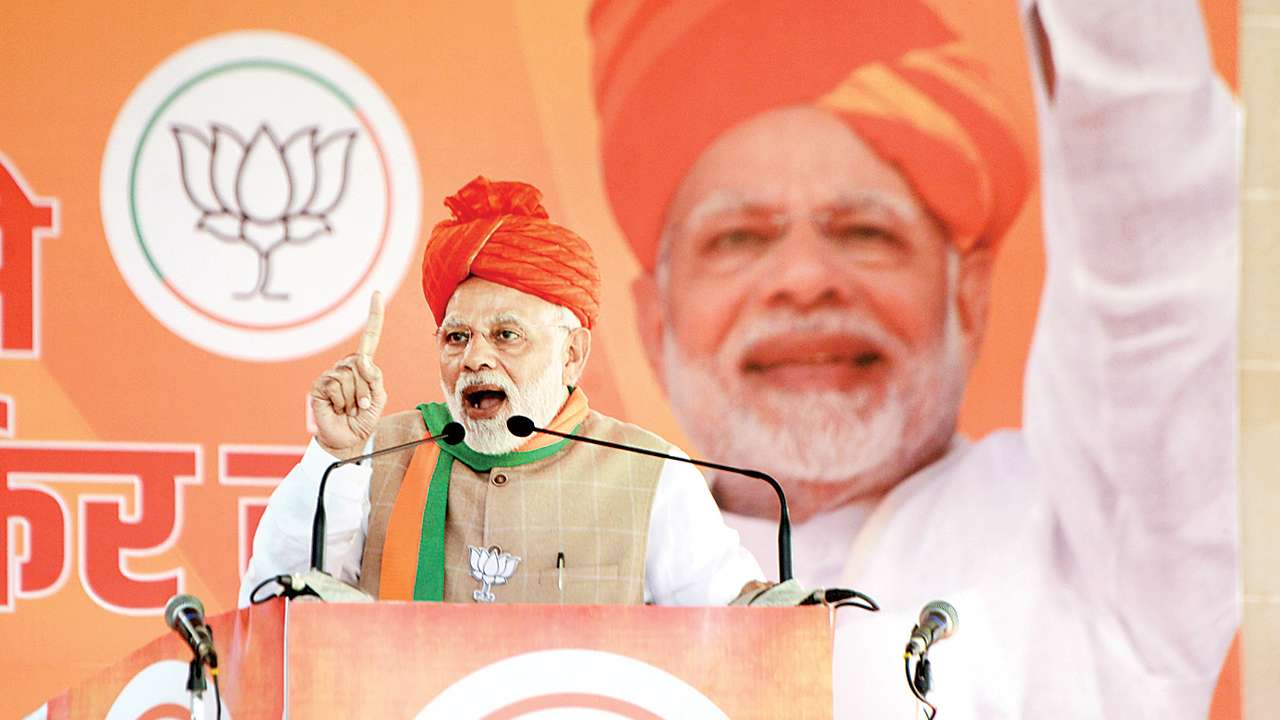PM Modi’s second term: The changes he might bring

Narendra Modi Prime Minister Narendra Modi
Though it is premature to assume, let alone predict, that Narendra Modi will get a second term as India’s Prime Minister, what if he does? Few, even his worst detractors, cannot dare to rule that out. All political watchers and observers know that Modi is far from finished. We can be sure that he will join the impending political battle for India with renewed determination and vigour, however tired or low-key he may seem at present. That is because we know by now how much he relishes the high-stakes game of Indian politics. If nothing else, he is an immensely gifted, articulate, capable, and energetic campaigner. What is more, Modi is a master communicator. In the past, in rally after rally, we have seen how hard he has hit back at his opponents with their own missiles. Given his track record as a fierce competitor and deadly adversary, it is perfectly legitimate and logical to ask what his second term will be like.
Modi turned 68 on September 17 last year. From October 7, 2001, to May 22, 2014, he was Chief Minister of Gujarat. On May 26, 2014, he assumed the most powerful office in the land, that of the Prime Minister of India.
Eighteen years in power is a long time. Modi has not yet tasted political defeat, but we can be sure that he has experienced all the highs and lows of politics. Occupying such challenging positions, thrice as Chief Minister and once as Prime Minister, he is close to having had seen it all. Certainly, he has experienced enough to attain a level of inner detachment, which is reflected more and more in his current demeanour.
At the least, we may thus expect a mellower, more mature Prime Minister. At the same time, we can suppose that he will be more considerate, compassionate, and caring for the people of India. In traditional Indian Niti Shastra, the ethics of Kingship was not founded on the exercise of despotic power. A true king or Rajan was he who delighted the praja or people. The people were not subject to his whims, fancies, and eccentricities, let alone his irresponsible and oppressive exercise of authority. Rather, the Rajan, himself subordinate to Raj Dharma, protected, nourished, and guided the citizenry.
Sri Rama was the ideal king, often known by the sobriquet Rajaram, the ideal ruler who put his public duties and responsibilities above his private happiness and pleasure. That is why the ideal state in India was called Ram Rajya. Modi, in his second term, will endeavour to make India once more a Ram Rajya. In so doing, he will be guided not only by partisan demands or electoral considerations but by his inner voice and higher spiritual values. In his second term, Modi will be less the political pugilist and more the elder statesman. Those who have been invoking Atal Bihari Vajpayee as his political opposite are likely to be disappointed for in his second term Modi will resemble Vajpayee much more than they imagined.
Several middle class politically strident supporters of BJP have been attacking Government for not doing enough for “Hindu” causes. Irate, even infuriated, they feel let down and betrayed. Some have gone so far as to threaten not to vote at all or even to vote against BJP. Unfortunately, these angry Hindus are likely to be even more disappointed if not sorry. For in his second term, far from being more right wing or radical, Modi will strive to be every Indian’s Prime Minister, rather than only the leader of Hindus.
Modi will also think beyond the immediate claims, imperatives, and exigencies of office, focussing on what is good for India in the long term. He will strive to reform the Government machinery and bureaucracy so that they become more people-friendly, not to mention, benevolent. More practically, this means that the over-centralisation of control in the PMO will also be a thing of the past; Ministries will get greater power and autonomy to do what they must for the welfare of the people. Modi will also strengthen democratic institutions at the local level, starting with Panchayati Raj, going all the way up to blocks, districts, regions, to states and other trans-state configurations such as the North East. In other words, Modi will enhance and augment the Indian federalism.
Sceptics may think that all the above has only been an exercise in wishful thinking. Worse, some will warn that Modi’s authoritarian and despotic tendencies will actually get stronger in his second term. Only time will tell who is right.
But whether we are voters or admirers, we must always hope and demand the best of our leaders. That is the true meaning of democracy.
Author is Director, IIAS, Shimla Views are personal